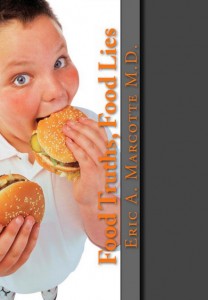September 4th, 2011 by John Mandrola, M.D. in Opinion
1 Comment »

The tweet said that experts were debating the merits of a polypill? I had to click that link.
Yes. I was right; there were actually “eminent” cardiologists suggesting that a pill containing 4 different medicines (a statin, aspirin, beta-blocker and an ACE-inhibitor) “might change the face of cardiovascular medicine.”
The direct quote from Dr. Salim Yusef, one of the most eminent heart doctors, went like this:
“We have to think of the polypill not as a pill, but as part of a strategy to completely change our approach to prevention,” said Yusuf. “Instead of saying lifestyle first and drugs next, why don’t we say that drugs are the basis, then get the patients contemplating prevention, and then get them to modify their lifestyle. Maybe that will work, because the reverse strategy hasn’t.”
Maybe it was jet lag? Read more »
*This blog post was originally published at Dr John M*
August 31st, 2011 by John Mandrola, M.D. in Health Tips, Research
1 Comment »

It’s Wednesday, so I would like to tell you about some cool things I learned this past week about the science of how exercise can be used as a treatment for three common ailments.
First, some background about exercise: The great thing about exercising every day that you eat is that this magic potion is not a shot or a pill. It does not involve a doctor burning or squishing anything in your body. There are no HIPAA forms, no insurance pre-certifications, and not even a co-pay. It’s as we say, easy and free. And drum roll please…exercise is active—not passive.
Here’s the Mandrola take on how exercise might treat three specific medical conditions: Read more »
*This blog post was originally published at Dr John M*
August 24th, 2011 by John Mandrola, M.D. in Health Tips
No Comments »

It may seem a little formal to say this, but I would like to start by stating my goals for today’s post:
- Introduce the concept of the athletic heart;
- Touch upon the notion of sudden death of the athlete;
- Explain what an ECG really is, and how it may help diagnose heart disease;
- Review a recent study about the common ECG variant seen in athletes…Early repolarization.
Intro: The adaptations of the human heart never cease to amaze me. Physical training transforms our hearts into high performance engines. Repeated sessions of interval training, combined with longer aerobic efforts, and sprinkled with adequate rest maximize our ability to keep pressure on the pedals, or run the sixth mile of the 10k at the same pace as the first, or for you swimmers, to keep getting back to the wall on the 1:15 mark.
Fitness also brings measurable changes in things we can observe. Read more »
*This blog post was originally published at Dr John M*
August 19th, 2011 by John Mandrola, M.D. in Health Tips
No Comments »

The “normal” number of heartbeats per minute is very much a frequently asked question. People, especially medical people, like well-defined lows and highs. Parameters which can be assigned an ‘L’ or ‘H’ makes life easier.

2009 National Championship Masters (45-49) Road Race
As a modern-day competitive cyclist, I am immersed in a sea of information. In our quest for weekend glory, minutia like speed, wattage outputs, RPMs, torque, elevation gain and of course, heart rates (highs, lows, and averages) get recorded, downloaded, and then studied intensively.
As a heart rhythm specialist, it is a frequent occurrence to see patients referred for low or high heart rates. More often than not, heart doctors are called upon to adjudicate patients who fall outside the “normal” values.
The old school teaching holds that the normal resting heart rate is greater than 55 and less than 100 beats per minute (bpm). Maximal heart rates are estimated by the Read more »
*This blog post was originally published at Dr John M*
August 18th, 2011 by Dr. Val Jones in Book Reviews
No Comments »
 Food Truths, Food Lies, written by family physician Eric Marcotte, M.D., may be the most refreshingly evidence-based diet book of the decade. You will not find a single mention of super-foods, magical berries, or supplement “must-haves” in the entire book. What you will find is the cold, hard truth about why many Americans are overweight, and what it takes to become a healthy eater.
Food Truths, Food Lies, written by family physician Eric Marcotte, M.D., may be the most refreshingly evidence-based diet book of the decade. You will not find a single mention of super-foods, magical berries, or supplement “must-haves” in the entire book. What you will find is the cold, hard truth about why many Americans are overweight, and what it takes to become a healthy eater.
Marcotte writes for the average American – his simple language, matter-of-fact tone, and regular reminders of what the reader has learned, make for a quick and memorable read. Although it’s clear that Marcotte has carefully distilled his dietary advice from the scientific literature, he refrains from burdening the reader with too many footnotes and references. Instead, he has created a kind of Cliff’s Notes of nutrition, having done the “heavy sifting” for us. What remains are the most basic principles underlying all healthy eating, such as:
*You can’t exercise your way to weight loss (i.e. you can’t outrun your own mouth – it’s much easier to eat more calories than you burn) Read more »













